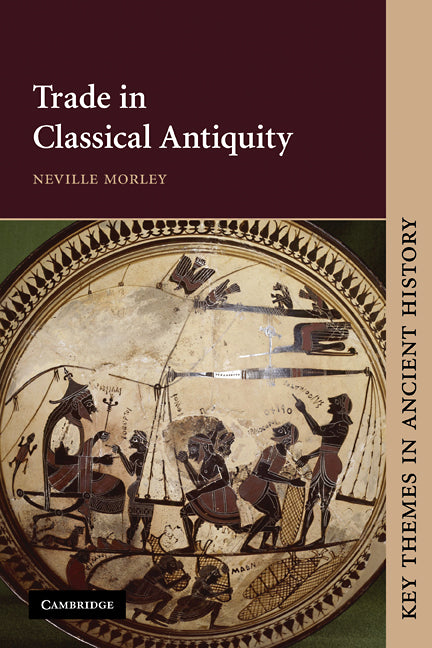Freshly Printed - allow 8 days lead
Couldn't load pickup availability
Trade in Classical Antiquity
This 2007 book examines the significance of ancient trade using ecological and cultural, as well as economic, perspectives.
Neville Morley (Author)
9780521634168, Cambridge University Press
Paperback, published 19 April 2007
136 pages
22.8 x 15.3 x 1 cm, 0.23 kg
'At a time when noisy attempts to redraw the battle lines in the field of ancient economic history are being made elsewhere, this short volume provides an invaluable service. … Neville Morley is a well-qualified and genial guide. His great strength for this kind of task, as he has shown in his previous books, is in his combination of a lucid and engaging style with theoretical sophistication and a healthy dose of sound sense. … this is an excellent introduction to ancient economic history in general as well as to one specific aspect.' Journal of Hellenic Studies
Historians have long argued about the place of trade in classical antiquity: was it the life-blood of a complex, Mediterranean-wide economic system, or a thin veneer on the surface of an underdeveloped agrarian society? Trade underpinned the growth of Athenian and Roman power, helping to supply armies and cities. It furnished the goods that ancient elites needed to maintain their dominance - and yet, those same elites generally regarded trade and traders as a threat to social order. Trade, like the patterns of consumption that determined its development, was implicated in wider debates about politics, morality and the state of society, just as the expansion of trade in the modern world is presented both as the answer to global poverty and as an instrument of exploitation and cultural imperialism. This 2007 book explores the nature and importance of ancient trade, considering its ecological and cultural significance as well as its economic aspects.
1. Trade and the ancient economy
2. Ecology and economics
3. Commodities and consumption
4. Institutions and infrastructure
5. Markets, merchants and morality
6. The limits of ancient globalisation.
Subject Areas: Economic history [KCZ], General & world history [HBG]


